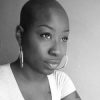Anyone I know who has been diagnosed with cancer was looking forward to the day of being acknowledged as a survivor rather than labeled as a patient.
To that notion I lend this - we are survivors from the time the words "you have cancer" leave the doctor’s lips. From breast cancer stage 0 to metastatic, I think we are all survivors.
I find it unfair that the world only recognizes us as survivors upon completion of a treatment plan
Further, I find it even more emotionally excruciating that once we do reach the “survivor” status acknowledged by medical professionals, family, and peers, it almost automatically dismisses the lifelong experiences we brave.
I want to share some basic principles I’ve applied from breast cancer diagnosis, through treatment, to life after cancer.
1. Self-Preservation is Key
As new survivors whose intentions are to overcome this dis-ease, we must put ourselves first. For so many people I meet, they are the centers holding the people they love together. And a good portion of those who are the heroes to everyone else almost never have anyone to help heal their wounds. As survivors, we must be aware that you are your primary concern. Communicate that because of your new status you may not be as readily available as you once were. Set clear boundaries and expectations. This time, ask for help if you need it! Discern whom you allow to support you, and ensure there is no expectation for their extension of love and help.
2. Take Care of Your Emotional Needs
The medical team you have entrusted to care for you throughout your journey is going to do their best to ensure an appropriate treatment plan and that you are physically comfortable. Treatment of cancer, however, can induce hormonal changes that may affect us emotionally. For many, the diagnosis itself can be quite overwhelming. Know that while the changes that confront you are unique to you, it is almost guaranteed there is someone who’s had similar experiences and may offer some assistance. This may even present an opportunity for a new friendship. If you are feeling overwhelmed, do not be ashamed to seek a therapist. It is such a relief! Counseling may even help you identify areas in your life needing attention and adjustments that aren’t relative to cancer at all. However, it may even make the battle easier!
Read Survivor Stories
3. You Look Normal
This has been a big hurdle for both survivors while in treatment and those who have fulfilled their treatment plan. However, there are several invisible effects like chemo brain, joint pain, irritability, PTSD, insomnia - the list goes on! It is easy to be offended by the innocent ignorance of supporters and strangers. While emotionally coping with the “new normals” of our lives, we can inform those who make assumptions about what we are really experiencing. We can advise what we can handle and where we still need assistance, despite how we may appear. This will make expectations from others clear. These boundaries protect you while adjusting to your new life. And they will allow you to heal at a pace required for you.
4. Survivor Forever
The complexities of emotional and physical stress also are not limited to the surgical and treatment stage of our life as survivors. There are still follow up visits, imaging, questions, conversations, blood workups, etc. All of which can be daunting for many. Prioritizing ourselves, implementing coping techniques, doing things we enjoy, and not minding the opinions of others are all things we must continually practice to maintain our wellness as we are forever survivors.
May these quick points be relatable and applicable. I celebrate your status, from beginning to forever. You are a survivor!
 Patricia Fox is a new contributor at YSC. Diagnosed with breast cancer at age 26, Patricia now shares her insights and deep wisdom in the hopes of encouraging other young adults like her. Read more about her and her work at thepinksistah.com.
Patricia Fox is a new contributor at YSC. Diagnosed with breast cancer at age 26, Patricia now shares her insights and deep wisdom in the hopes of encouraging other young adults like her. Read more about her and her work at thepinksistah.com.




